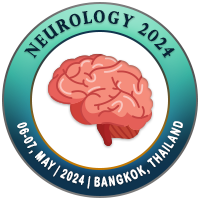
Tatiana Tomenko
European Medical Center UMMC-Health, Russian FederationTitle: Effects rehabilitation with interactive metronome training on speech disorders and epilepsy patients
Abstract
Purpose: The objective of this study was to examine the efficacy of Interactive Metronome (IM) training in children with speech disorders and patients with epileptiformactivity (EA) on EEG with and without seizures.
Methods: Sixty for patients at the age 6-11 years who had been diagnosed with high cognitive function deficit, in conjunction with motor dysphasia (n=27), stuttering (n=28), and EA without seizures (11) and with seizures (8) took 20one-hour training sessions of IM in 9.5 weeks. Each child was assessed before and after the treatment with the IM training protocol and a parent questionnaire. All patients with seizures were treated by valproats in averagedose 24 mg/kg.
Result: There were statistically significant differences (<0.05) in the audio-motor coordination hands motor dysphasia patients. Significant differences were observed (<0.05) in the audio-motor coordination hands and legs, reciprocal coordination and spatial functions for children with stuttering and EA with and without seizures. As compared between groups of patients the best results were demonstrated by children with EA. Parents noted improvement behavior, attention, rate of speech and skills. IM training didn’t increase seizures and EA, valproats were not impact on cognitive function.
Conclusion: IM training can be successfully used for cognitive rehabilitation and skills for children with cognitive dysfunction, in conjunction with speech disorders, EAon EEG without seizures and with different form epilepsy.
Biography
To be updated.

